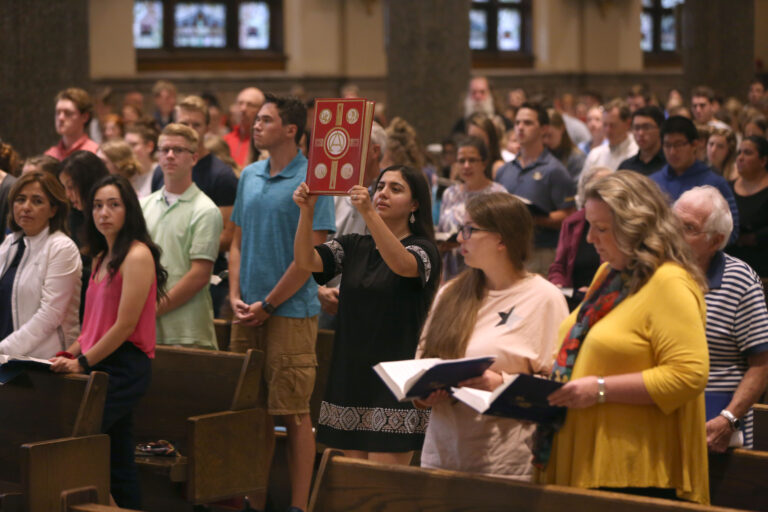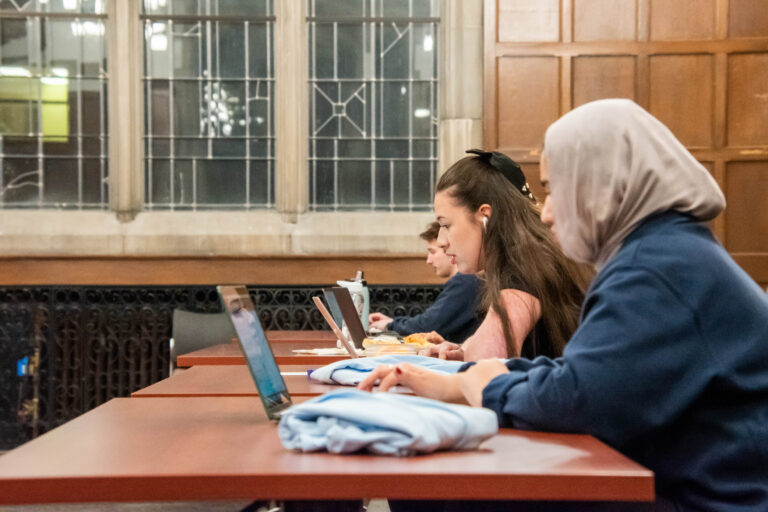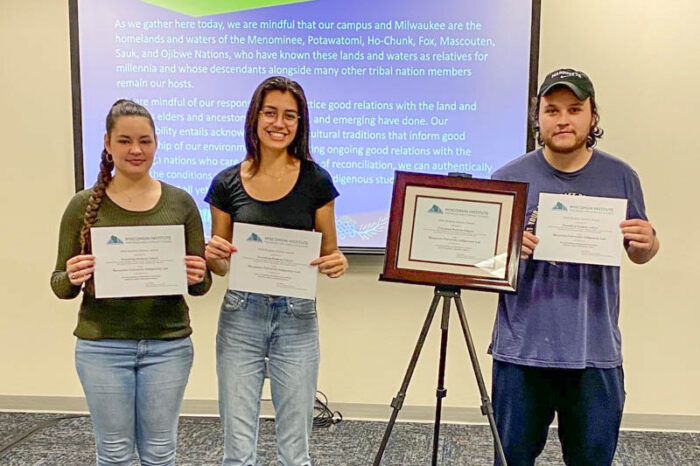
Like its fellow Catholic, Jesuit institutions, Marquette University cherishes the dignity of all people, and so its commitment to diversity, equity and inclusion fittingly transcends a single office on campus. It permeates the university and is embedded in the Milwaukee university’s mission and values.
It is also represented in Race, Ethnic and Indigenous Studies (REIS) programming, various partnerships, initiatives, faculty research and class projects — including those that focus on the history of Indigenous peoples.
In fall 2021, the first student cohort participated in the new Marquette Indigeneity Lab.
The Marquette Indigeneity Lab promotes Marquette’s Indigenous undergraduate students’ experiential learning through high-impact, faculty-mentored interdisciplinary research. In addition to promoting respectful partnerships and outreach with Wisconsin’s Indigenous communities, the program activates research topics that have significant implications for increased awareness and understanding of Indigenous history and culture in Milwaukee.
The student cohort worked on three projects overseen by Dr. Samantha Majhor, assistant professor of English; Dr. Bryan Rindfleisch, associate professor of history; and Dr. Michael Schlappi, professor of biological sciences — all in the Klingler College of Arts and Sciences.
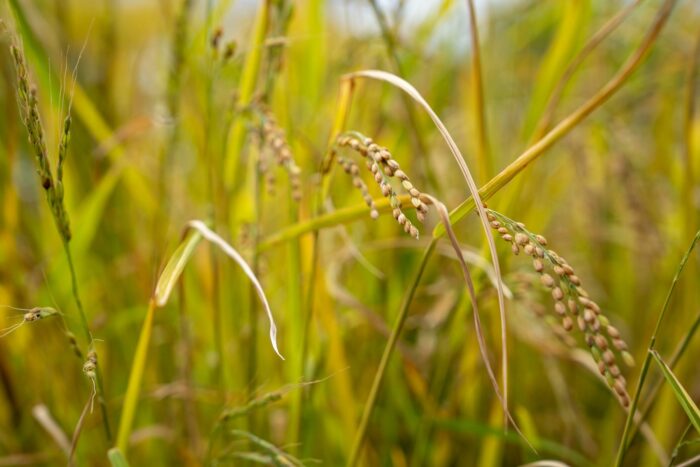
The projects included a study into the potential for reintroducing wild rice seed varieties to the Menomonee River Valley and how traditional ecological knowledge informs restoration efforts, archival research on Catholic Indian Boarding Schools, and an interactive data visualization map of Indigenous Milwaukee.
The mapping project received attention on and off campus, as it aimed to create a platform where all Milwaukeeans can learn and connect with the history that served as the foundation for the area where they live. Led by Rindfleisch, it put into perspective Milwaukee’s large populations of American Indian people and the indigenous history of popular locations today like American Family Field, the Milwaukee Art Museum and the Mitchell Park Domes, which are built on native lands.
According to the 2020 Census, more than 7,500 American Indian people live in Milwaukee County — one of the largest populations of American Indian people in the Midwest.
The project was designed in response to an observed erasure of Indigenous people throughout history. By identifying the places Indigenous histories and cultures run deep in Milwaukee, Rindfleisch and the students quite literally put those important elements on “the map” for viewers to visualize, appreciate, reflect upon and learn from.
The Indigeneity Lab’s work was expanded through a partnership with Historic Milwaukee, Inc. to create self-guided Indigenous Milwaukee Walk & Bike Tours.
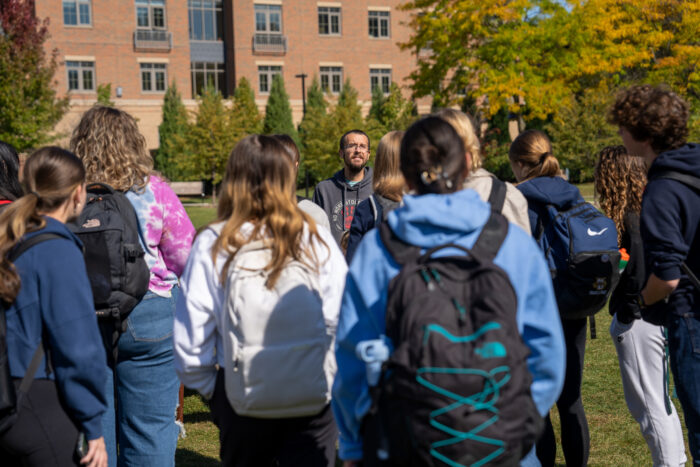
All three Marquette Indigeneity Lab projects received interest and praise on and off campus.
The founding cohort of Marquette student researchers were honored with the 2022 Student Activist Award from the Wisconsin Institute for Peace and Conflict Studies (WIPCS): Danielle Barrett, Bailey Birenbaum, Clare Camblin, Rebecca DeBoer, Cameron Fronczak, Alex Liberato, Sir Lawrence Tender and Will Egan Waukau.
WIPCS, of which Marquette is a member, is a group of private and public colleges and universities that aim to spread awareness on the issues of peace and conflict. A valuable resource for institutions looking to internationalize and globalize their curricula and co-curricular programs, WIPCS encourages debate on topics such as foreign policy issues, areas of conflict, intercultural communication and gender relations.
According to the WIPCS website, the Student Activist Award is presented to college students in Wisconsin who have made “an outstanding contribution to activism related to peace and justice issues and demonstrated commitment to peace and justice issues through participation in activism either on the home campus or in the larger community.”
Nominators for the award describe the Marquette research and activism as effective efforts to “radically attend to the erasure of Indigenous Peoples in Milwaukee and more broadly the United States. It is clear these eight Indigeneity Lab students activated the Marquette mission in their discovery of truth and sharing of knowledge. But as great an impact was their personal awakening, not just around their research, but their identity and how they can give back to honor those cultural affiliations.”
As the Marquette Indigeneity Lab geared up for its dynamic research, Marquette also developed and issued its land and water acknowledgement.
A land and water acknowledgment is a way of offering respect to Indigenous citizens, both those who have come before and those currently living on said land; correcting the practice of erasing Indigenous people’s history; and recognizing that Indigenous peoples continue to be a vital part of the country’s lands now and in the future.
Marquette University’s land and water acknowledgment is a statement that developed over weeks of reflection and conversation led by Indigenous student leaders with key faculty and staff. The statement recognizes the long history of Native peoples and nations that lived on and stewarded the land and water where the university now resides. It also celebrates the unbroken connection Native people and nations still have to this land and waterways, their traditional territories.

